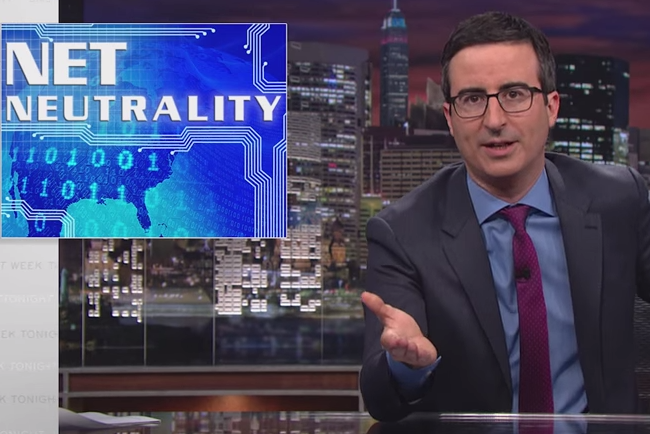
The Internet rejoiced over the idea that comedian John Oliver’s 13-minute rant on Net neutrality inspired trolls to do something useful for once. Now, the revelry may all be dismissed as a farce. The FCC claims that it was hacked shortly after the airing of Oliver’s rant on his show Last Week Tonight.
In an interview with Vice, the FCC said that its comments page was compromised by a database denial of service (DoS) attack. The FCC’s public comment system, which is said to be 17 years old, was disabled for several hours, thereby preventing people from submitting filings.
A database DoS attack is different from the common type of DoS attacks because it affects the infrastructure that the website runs on. According to Vice, instead of overwhelming the FCC page by introducing too many meaningless connections, the hackers were said to have held up the system by repeatedly adding comments and then executing searches for records. This method is known to introduce “dead record locks,” which locks up the system when multiple users try to view or edit the same record.
“We received a surge in the volume of visits to our electronic comment filing system last week,” FCC spokesperson Kim Hart told Vice. “A byproduct of the high volume was what is known as a ‘dead record lock,’ where connections in the database create record lock contention and eventually cause the system to freeze. This created difficulty for people trying to submit and search for filed comments.”
The FCC also revealed that its electronic comment filing system (ECFS) experienced an upsurge in Internet traffic that amounted to 10-fold the volume that the website typically handles. From June 2-6 (Oliver’s show aired on June 1), the number of dead record locks in the system also increased by 40 times the usual number of incidents.
In an almost comical turn of events, the FCC later denied what it said, telling Engadget that its comments were misconstrued. It said that there was no evidence of a malicious attack and that an uptick in Internet traffic caused the system to crash. Vice answered by saying that its FCC source confirmed the cyberattack.
While the circumstances remain murky, we are holding out hope that a kumbaya moment was facilitated by a man who called the Internet “the electronic cat database.” If you missed Oliver’s brilliant explanation of Net neutrality, you can check out the excerpt from his show below.


